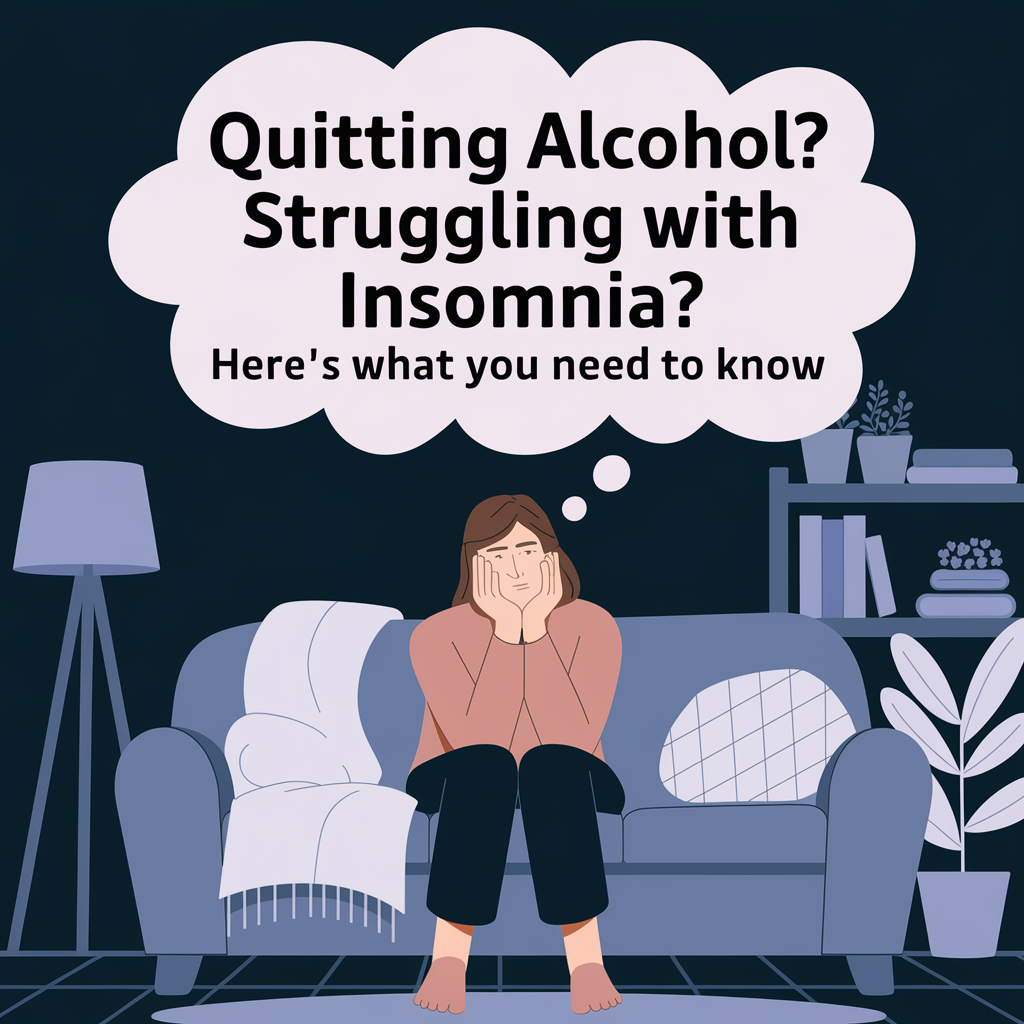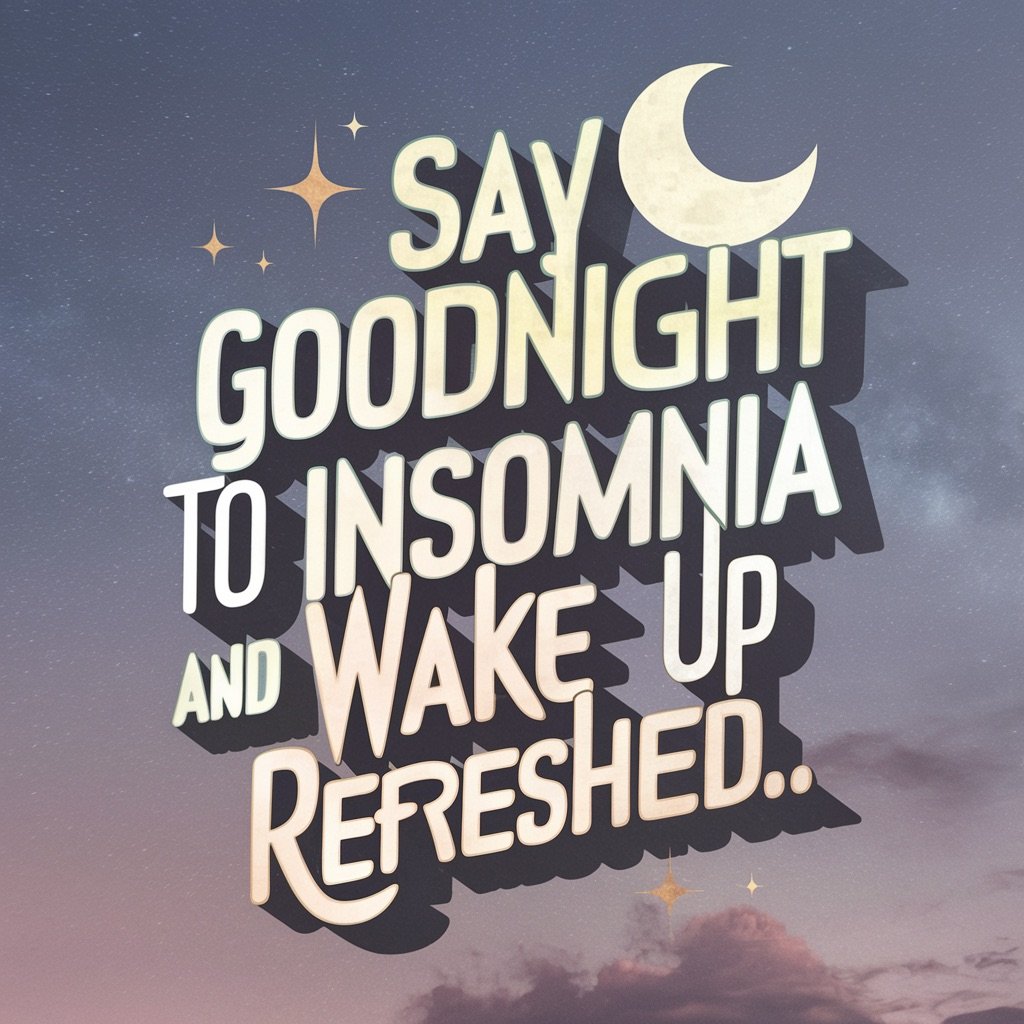
The Battle Against Insomnia
If you’ve ever spent the night tossing and turning, staring at the clock, or counting sheep without success, you’re not alone. Insomnia is a problem that millions of people struggle with, and it can feel like a never-ending battle. Whether it’s trouble falling asleep, staying asleep, or waking up way too early, insomnia has a sneaky way of ruining your nights—and your days.
I know from personal experience how frustrating it can be. You try everything from sleeping pills to late-night TV binges, hoping something will finally knock you out. But often, those quick fixes don’t last, and you’re left feeling groggy, irritable, and exhausted.
The good news? There’s a way to say goodnight to insomnia for good—without relying on drugs or ineffective sleep aids. In this article, we’re going to explore some of the best techniques to help you overcome insomnia naturally. One of the most effective programs out there is Dr. Gregg D. Jacobs’s Say Good Night to Insomnia, a proven, drug-free method that’s helped thousands of people reclaim their sleep.
Stick with me as we dive into how this program works and how you can start improving your sleep tonight. After all, who doesn’t want to finally wake up feeling refreshed and ready to take on the day? Let’s get started!
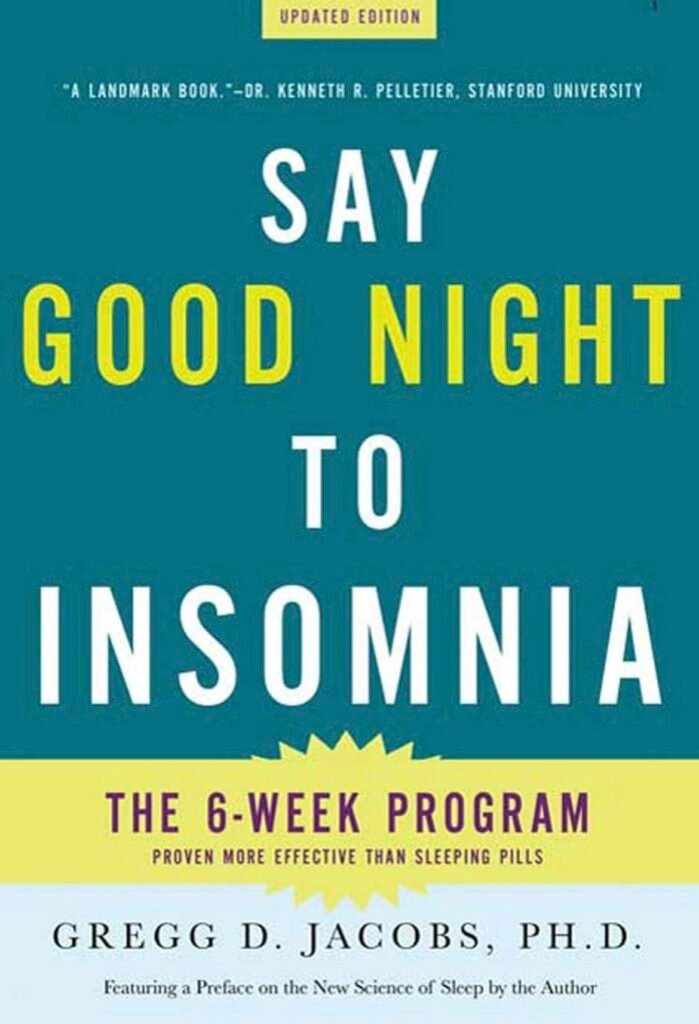
Understanding Insomnia and Its Impact on Your Life
Insomnia is more than just a minor inconvenience. It can take a serious toll on your life, from your health to your productivity to your relationships. We’ve all had the occasional sleepless night, but when those nights become a regular thing, it starts to impact everything you do.
For many people, insomnia means spending hours trying to fall asleep, only to wake up multiple times throughout the night. Others might drift off easily, but wake up way too early and find themselves staring at the ceiling, wide awake when it’s still dark outside. Whichever type of insomnia you’re dealing with, the result is the same—exhaustion, frustration, and a lot of lost hours of sleep.

The ripple effect of insomnia is real. It doesn’t just stop when you get out of bed. Lack of sleep can affect your concentration, memory, and mood, making even the simplest tasks feel overwhelming. And let’s be honest, when you’re sleep-deprived, everything feels a little more challenging, whether it’s work, family life, or even finding the energy to take care of yourself.
The physical toll is significant too. Sleep is when your body repairs itself, both mentally and physically. Without enough rest, you might notice more aches and pains, a weakened immune system, or even weight gain. The long-term effects of untreated insomnia can lead to more serious health problems, including heart issues and mental health struggles like anxiety and depression.
But the good news is that it’s possible to say goodnight to insomnia with the right approach. If you’re ready to break free from the sleepless cycle, a program like Dr. Jacobs’s Say Good Night to Insomnia offers a drug-free method to help you restore healthy sleep patterns. It focuses on treating insomnia at its core, helping you change habits and behaviors that may be keeping you up at night.
And if you’re looking for a quick solution to get started right now, check out this Quick Fix: How to Cure Insomnia in Just 12 Minutes for some fast relief while you work on long-term changes.
Let’s explore how Dr. Jacobs’s method works and why it’s been the go-to solution for sleep-deprived people for over 25 years.
Have you ever had a sleep study test done? Check out our article that covers the cost of getting a sleep study test and if it’s worth it!
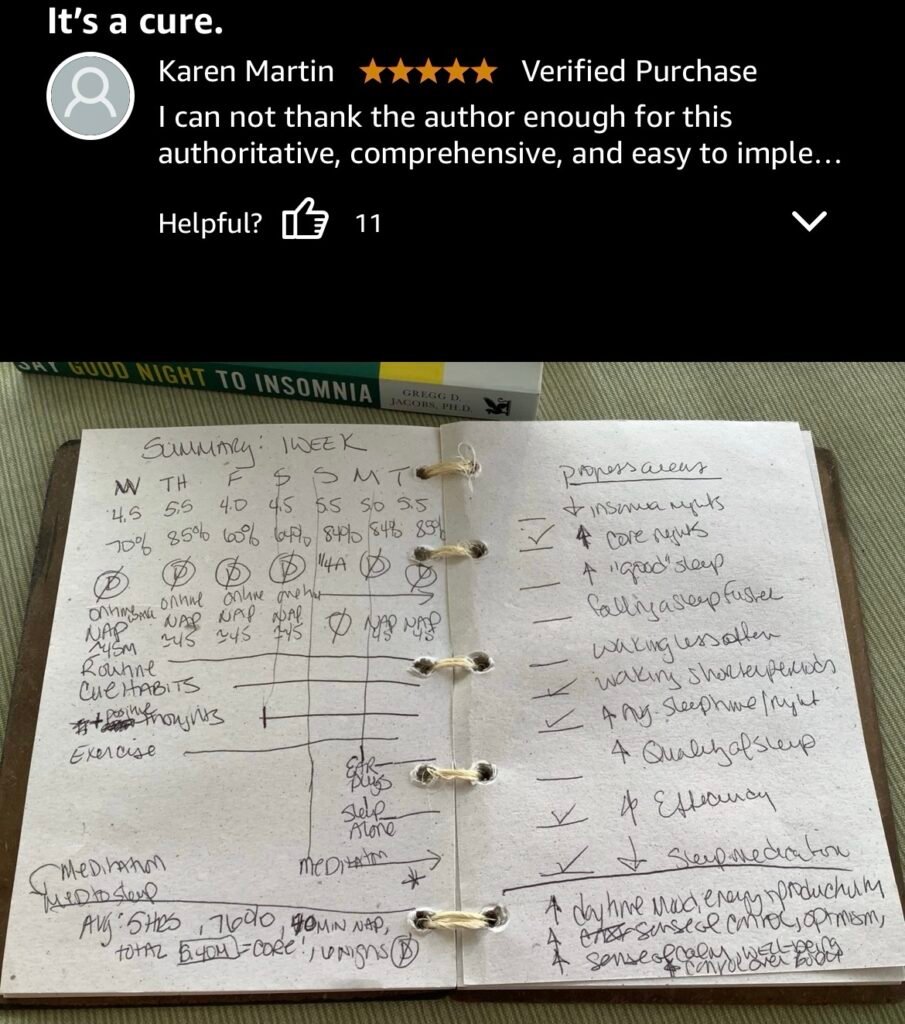
The Say Goodnight to Insomnia Program: A Drug-Free Solution
When I first came across Dr. Gregg D. Jacobs’s Say Good Night to Insomnia, I was intrigued by the idea of overcoming insomnia without the need for medication. Like many people, I had dabbled with over-the-counter sleep aids and even considered stronger prescription pills. But I wanted something that could offer long-term results without relying on drugs. That’s where Dr. Jacobs’s approach stood out.
His program is based on cognitive behavioral therapy (CBT), a method that helps you retrain your brain and develop healthier sleep habits. It’s not about popping a pill and hoping for the best—it’s about addressing the root causes of insomnia and making lasting changes that improve your sleep for good.
Developed and tested at Harvard Medical School, this program has been proven to work for over 80% of people who try it. Those are some pretty impressive numbers, especially when compared to sleeping pills, which often stop being effective after a few weeks of use. Plus, Dr. Jacobs’s method is backed by research and doesn’t come with the side effects or long-term risks associated with sleep medications.
The Say Goodnight to Insomnia program focuses on a few key areas:
- Building healthy sleep habits: This involves establishing a consistent bedtime routine, creating a sleep-friendly environment, and cutting out behaviors that might be sabotaging your sleep.
- Managing stress and anxiety: Stress is a huge factor when it comes to insomnia, and Dr. Jacobs’s program helps you manage it with relaxation techniques, mindfulness, and other strategies to quiet your mind before bed.
- Changing negative thoughts about sleep: If you’ve ever been stuck in a cycle of worrying about not sleeping, you know how frustrating it can be. This program teaches you how to shift your mindset so you’re not lying awake, stressing about sleep.
What I found especially helpful is that the program teaches you how to gradually reduce your dependence on sleep aids, if that’s something you’ve been using. Instead of relying on pills, you’re retraining your body and mind to fall asleep naturally—and that’s something that sticks with you long-term.
If you’re tired of temporary fixes and want a proven, lasting solution, Dr. Jacobs’s Say Good Night to Insomnia offers a clear path forward. The techniques are practical, easy to implement, and designed to fit into your daily life. You’re not just treating the symptoms—you’re solving the problem.
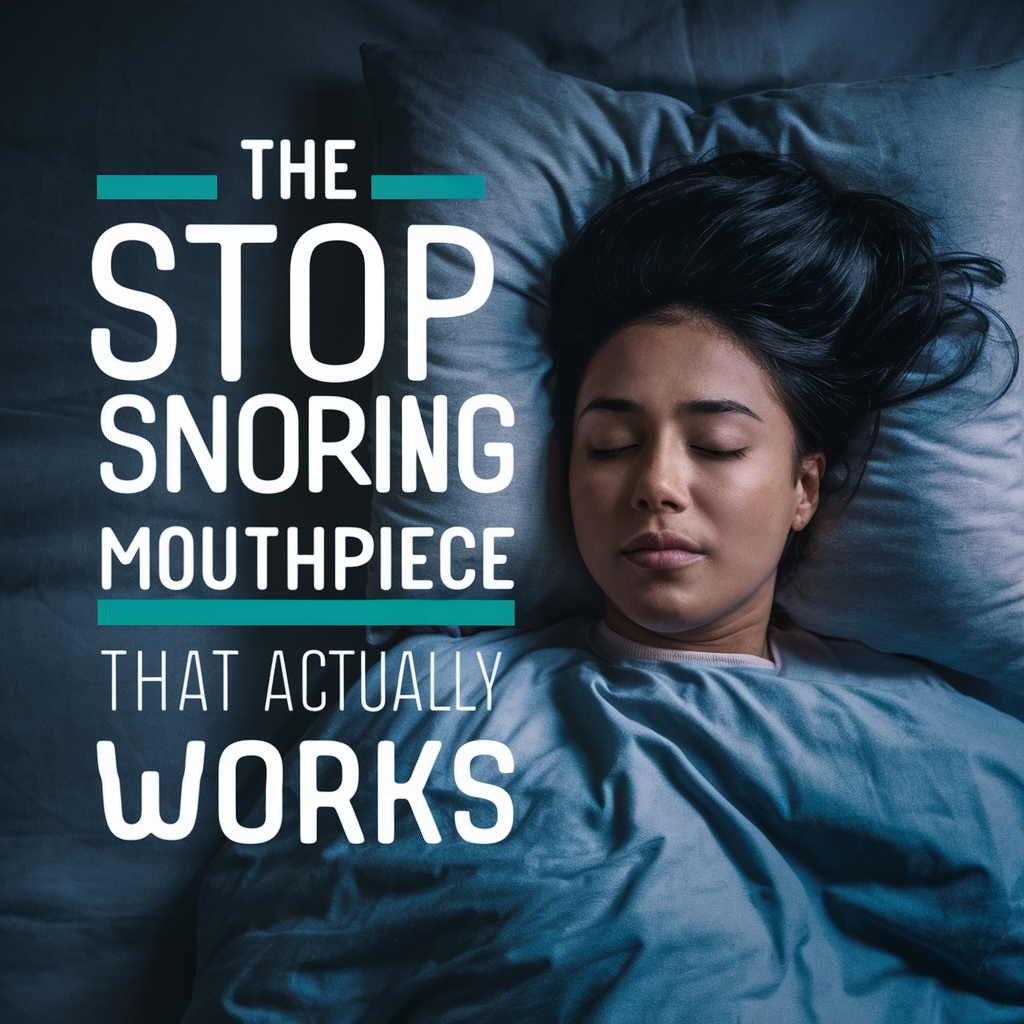
Ready to dive into some of the specific techniques that make this program so effective? Let’s take a look at how they can help you say goodnight to insomnia once and for all.
Key Techniques to Help You Say Goodnight to Insomnia
One of the things that really sets the Say Good Night to Insomnia program apart is its focus on practical, easy-to-apply techniques that target the underlying causes of insomnia. These aren’t quick fixes or gimmicks; they’re proven methods that help you build lasting habits for better sleep. Let’s break down some of the key techniques Dr. Jacobs recommends to help you finally say goodnight to insomnia.
1. Establishing a Consistent Sleep Routine
Consistency is key when it comes to overcoming insomnia. Dr. Jacobs emphasizes the importance of sticking to a regular sleep schedule, even on weekends. Going to bed and waking up at the same time every day helps train your body’s internal clock. It may take some time to adjust, but eventually, your body will start to recognize when it’s time to sleep.
2. Eliminating Negative Thoughts About Sleep
Ever found yourself lying in bed thinking, “I’ll never fall asleep,” or “I’m going to be exhausted tomorrow”? These negative thoughts can create anxiety around sleep, which makes it even harder to drift off. A big part of the Say Good Night to Insomnia program is learning how to break free from these unhelpful thought patterns. Through cognitive behavioral therapy (CBT) techniques, you’ll learn to shift your mindset, reducing the stress and pressure around falling asleep.
3. Creating a Sleep-Promoting Environment
Dr. Jacobs also focuses on the importance of your sleep environment. That means making sure your bedroom is dark, quiet, and cool. If you struggle with outside noise, try a white noise machine or earplugs. For those sensitive to light, blackout curtains or a sleep mask can work wonders. The idea is to remove anything that could disrupt your sleep and create a calm, restful space.
4. Relaxation Techniques
If stress or anxiety is keeping you up at night, relaxation techniques are key. The Say Good Night to Insomnia program includes various methods for calming your mind before bed. Simple practices like deep breathing, progressive muscle relaxation, or meditation can make a huge difference. These techniques help reduce the tension in your body and signal to your brain that it’s time to sleep.
5. Breaking Bad Habits
Certain habits may be keeping you awake without you even realizing it. Dr. Jacobs’s program helps you identify behaviors that might be sabotaging your sleep, such as late-night screen time, too much caffeine, or irregular meal times. Once you recognize these habits, you can start replacing them with sleep-friendly behaviors.
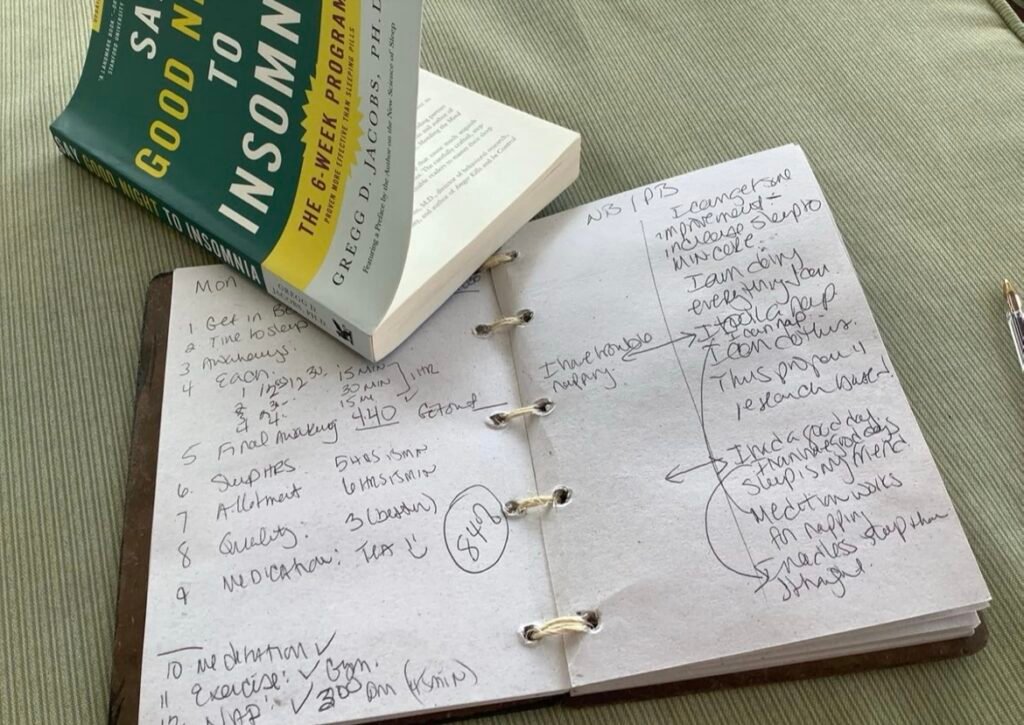
If you’re curious about more ways to quickly improve your sleep routine, check out the 12-Minute Quick Fix for Insomnia for additional tips that can help you fall asleep faster tonight.
By incorporating these techniques into your nightly routine, you’ll be setting yourself up for long-term success. The beauty of the Say Good Night to Insomnia program is that it’s not just about getting one good night of sleep—it’s about transforming your sleep habits for life.
Why Cognitive Behavioral Therapy Works Better Than Sleeping Pills
For many people struggling with insomnia, the go-to solution is often sleeping pills. They seem like a quick fix—pop a pill, fall asleep, problem solved. But as anyone who’s tried them long-term knows, it’s not that simple. While sleeping pills can help you knock out for a night or two, they come with a host of drawbacks, including side effects, dependency issues, and, let’s be honest, they don’t address the root problem. That’s where cognitive behavioral therapy (CBT) comes in, and why Dr. Jacobs’s Say Good Night to Insomnia program is such a game-changer.
1. Long-Term Solution vs. Temporary Fix
One of the biggest advantages of CBT for insomnia is that it’s a long-term solution. Sleeping pills can help you fall asleep for a short period, but once you stop taking them, the insomnia often comes right back. CBT, on the other hand, tackles the underlying causes of insomnia—whether it’s stress, anxiety, or poor sleep habits—and helps you make lasting changes that improve your sleep for the long haul.
In fact, research has shown that CBT for insomnia is more effective than sleeping pills in the long run. Dr. Jacobs’s program focuses on building better sleep habits and changing the way you think about sleep, so you’re not relying on medication to fall asleep every night.
2. No Side Effects
Let’s be real—sleeping pills often come with unwanted side effects. Grogginess, dizziness, and even memory problems can crop up if you’re relying on them regularly. Not to mention, some people develop a tolerance to the pills, meaning they need to take more over time to get the same effect. With CBT, you’re not introducing anything foreign into your body. You’re simply retraining your mind and body to sleep naturally, without any of the side effects that come with medication.
Do you sleep with the TV on? Read more here on why this could be hurting you!
3. Breaking the Cycle of Dependence
It’s easy to fall into the trap of becoming dependent on sleeping pills. You might start out taking them occasionally, but before you know it, you can’t imagine falling asleep without them. Dr. Jacobs’s program helps you break this cycle by giving you practical tools to rely on instead of pills. Once you master the techniques in Say Good Night to Insomnia, you’ll be able to fall asleep naturally, no medication required.
4. Addresses the Root Cause
Sleeping pills might make you fall asleep, but they don’t address why you’re having trouble sleeping in the first place. That’s where CBT really shines. It looks at the root causes of your insomnia—whether it’s negative thoughts about sleep, poor sleep hygiene, or stress—and helps you address them head-on. By targeting the underlying issues, you’re not just treating the symptoms, you’re solving the problem.
Adrenal Fatigue can be a common issue that causes insomnia!
Dr. Jacobs’s updated edition of Say Good Night to Insomnia also dispels many of the myths about sleeping pills, making it clear why natural, behavioral solutions like CBT are the gold standard for insomnia treatment. His program is rooted in years of research and has helped thousands of people say goodbye to sleeping pills for good.
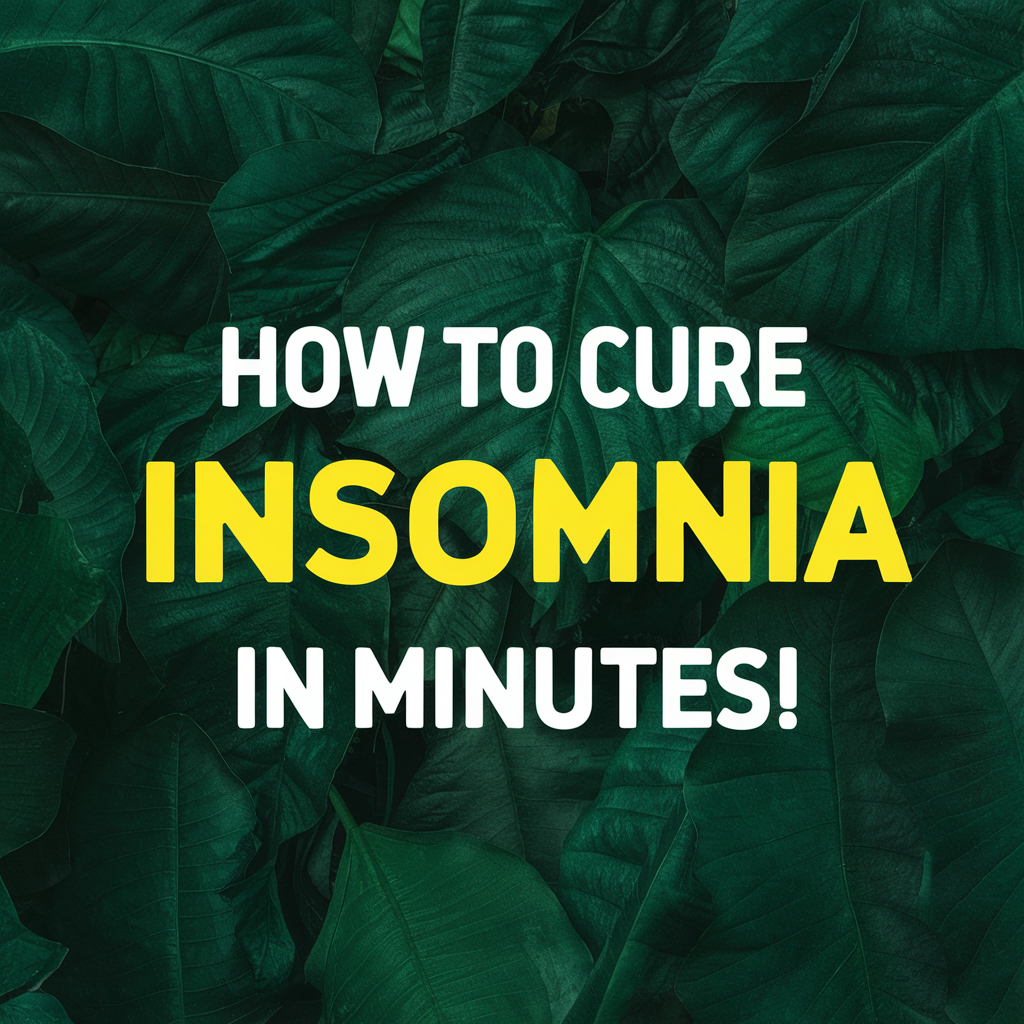
If you’re tired of relying on pills to sleep or if they’ve stopped working as well as they used to, it’s time to give CBT a try. And don’t forget, if you’re dealing with snoring on top of insomnia, that could also be contributing to your sleep issues. You might want to check out The Stop Snoring Mouthpiece That Actually Works for a solution that tackles snoring and helps improve overall sleep quality.
By choosing CBT over sleeping pills, you’re giving yourself a chance to fix the problem once and for all, without the side effects or dependency. It’s a healthier, more sustainable way to say goodnight to insomnia and get the restful nights you deserve.
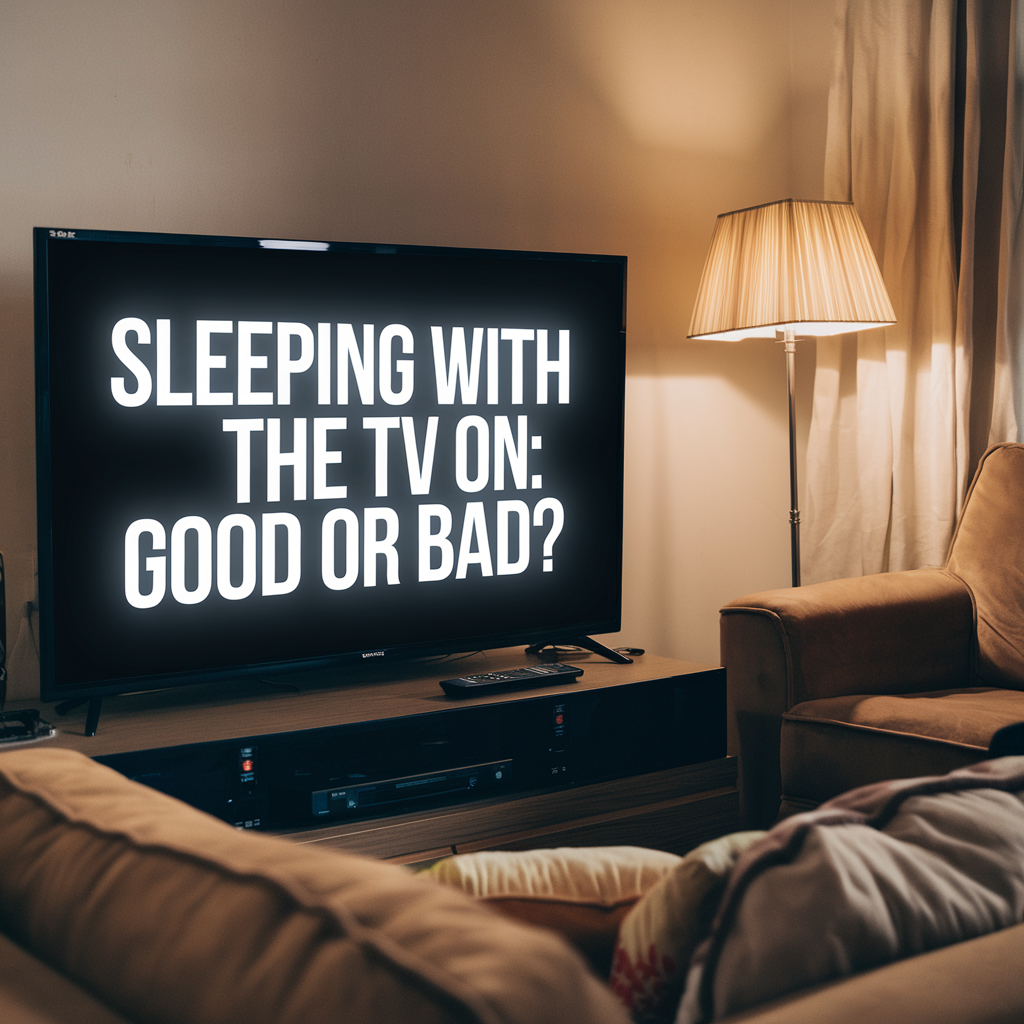
Say Goodnight to Snoring Too: Improving Overall Sleep Quality
While insomnia can certainly keep you up at night, there’s another common culprit that might be messing with your sleep—snoring. For many people, snoring not only disrupts their sleep, but it also keeps their partner from getting a good night’s rest. If you’ve ever woken up to an elbow nudge or found yourself unable to breathe comfortably while sleeping, snoring might be part of your problem.
The good news is, you can say goodnight to insomnia and snoring with a few changes to your bedtime routine. Sometimes, snoring can actually be a contributing factor to insomnia—whether it’s waking you up in the middle of the night or causing breathing disruptions that prevent you from reaching deep, restorative sleep. So, tackling both issues head-on can really improve your overall sleep quality.
One highly effective way to combat snoring is through the use of a snoring mouthpiece. Devices like the PureSleep Anti-Snoring Mouthpiece work by gently repositioning your jaw to keep your airway open while you sleep. By keeping your airway clear, these mouthpieces help reduce or even eliminate snoring, allowing you to breathe easier and sleep soundly through the night.

If you’re thinking snoring is only a minor issue, think again. Addressing snoring not only helps you sleep better, but it also prevents your partner from waking up multiple times during the night. Snoring is one of those sneaky issues that can lead to more wake-ups than you realize, and by fixing it, you’ll create a better sleep environment for both you and your partner.
Plus, when you combine a snoring solution with the techniques found in Dr. Jacobs’s Say Good Night to Insomnia program, you’re tackling sleep issues from multiple angles. Whether it’s insomnia, snoring, or both, finding the right solutions can dramatically improve the quality of your nights—and how you feel in the morning.
So, while you work on the cognitive behavioral techniques to overcome insomnia, don’t forget to address any snoring issues too. It’s all connected. With the right strategies, you’ll be able to say goodnight to insomnia and snoring, setting yourself up for a restful, uninterrupted night’s sleep.

And if you want more quick fixes and tips for better sleep, check out the Quick Fix: How to Cure Insomnia in Just 12 Minutes for some fast, effective methods to start sleeping better tonight.
Final Steps to Take for a Restful Night
Now that you have a solid understanding of how to say goodnight to insomnia and improve your sleep, it’s time to put these ideas into action. Overcoming insomnia isn’t about making one massive change, but rather incorporating a few key strategies into your nightly routine and sticking with them over time. Let’s recap a few final steps you can take to ensure a restful night and a brighter morning.
1. Create a Consistent Sleep Schedule
This is one of the simplest yet most effective changes you can make. Going to bed and waking up at the same time every day—even on weekends—helps regulate your body’s internal clock. Over time, your body will start to expect sleep at those times, making it easier to drift off naturally.
2. Optimize Your Sleep Environment
Make sure your bedroom is conducive to sleep. That means a cool, dark, and quiet environment. Consider blackout curtains or a sleep mask to block out light, and use a white noise machine or earplugs if noise is an issue. The less your brain has to deal with while you’re trying to sleep, the easier it will be to relax and fall asleep quickly.
3. Practice Relaxation Techniques
Stress and anxiety are huge contributors to insomnia. To help your mind and body wind down before bed, try incorporating relaxation techniques like deep breathing, progressive muscle relaxation, or meditation into your routine. Even just 5-10 minutes of focused relaxation can help prepare your body for sleep.
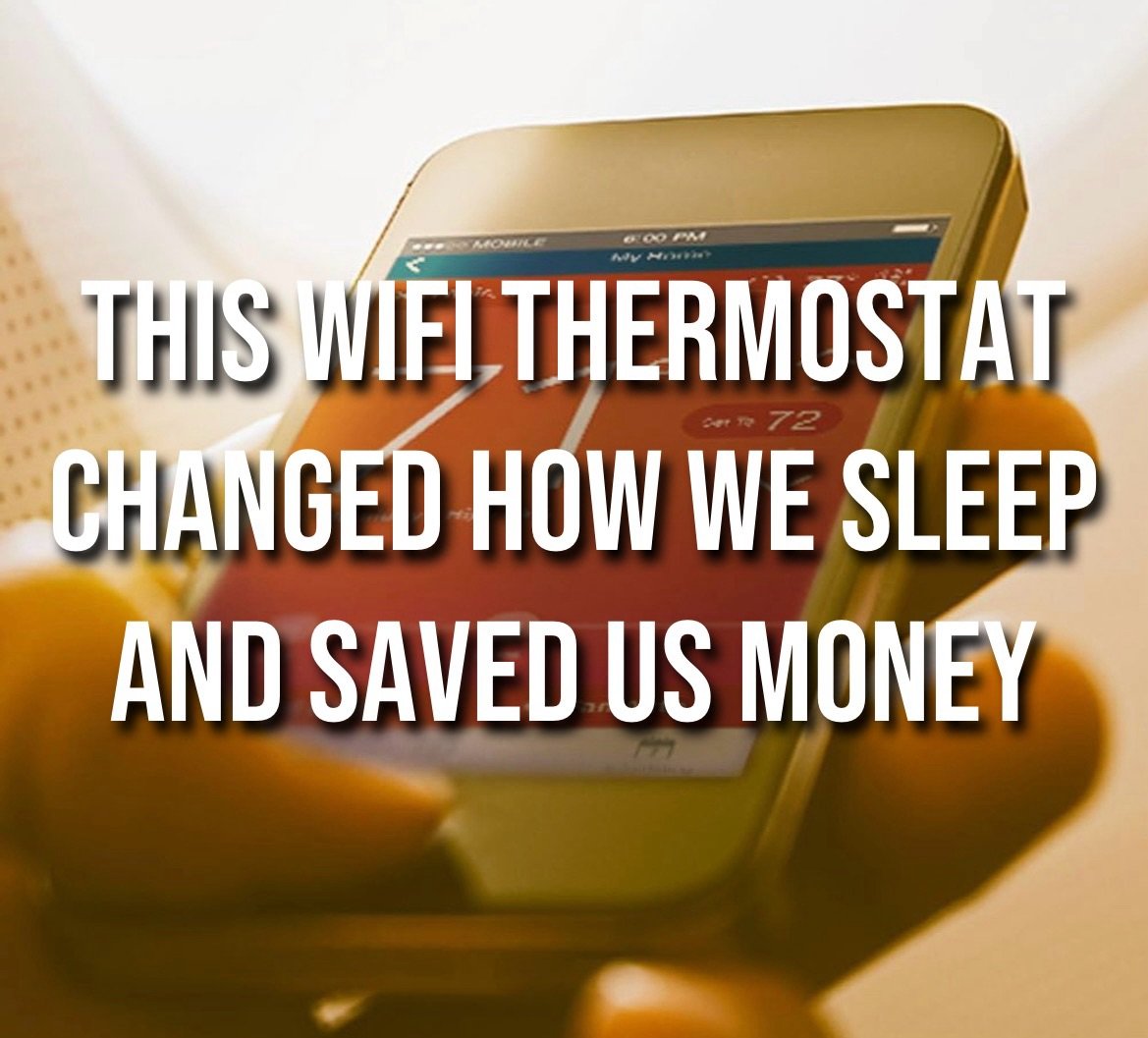
4. Avoid Sleep Disruptors
Keep an eye on things that might be keeping you up. Limit your caffeine intake in the afternoon, avoid heavy meals right before bed, and cut back on alcohol, which can mess with your sleep cycle. And if you’re a late-night scroller, try putting your phone away at least 30 minutes before bed—the blue light from screens can interfere with your body’s natural sleep signals.
5. Use Proven Techniques for Insomnia
If you’re struggling with long-term insomnia, following the methods laid out in Say Good Night to Insomnia by Dr. Gregg D. Jacobs will give you a long-term solution. This CBT-based program has helped thousands of people overcome insomnia naturally by addressing the root causes and changing unhealthy sleep habits.
6. Don’t Forget to Address Snoring
If snoring is part of your sleep struggle, it’s important to deal with that issue alongside your insomnia. You can explore solutions like the PureSleep Anti-Snoring Mouthpiece, which helps keep your airway open and can significantly reduce snoring.

With these final steps, you’re well on your way to saying goodnight to insomnia and enjoying the kind of restful, uninterrupted sleep you’ve been craving. Whether you start by adjusting your sleep habits or dive right into Dr. Jacobs’s program, the key is to stay consistent and patient. Remember, improving your sleep is a gradual process, but the results are absolutely worth it.
By making these changes and following through with proven techniques, you’ll wake up feeling refreshed, energized, and ready to take on the day. Sweet dreams!
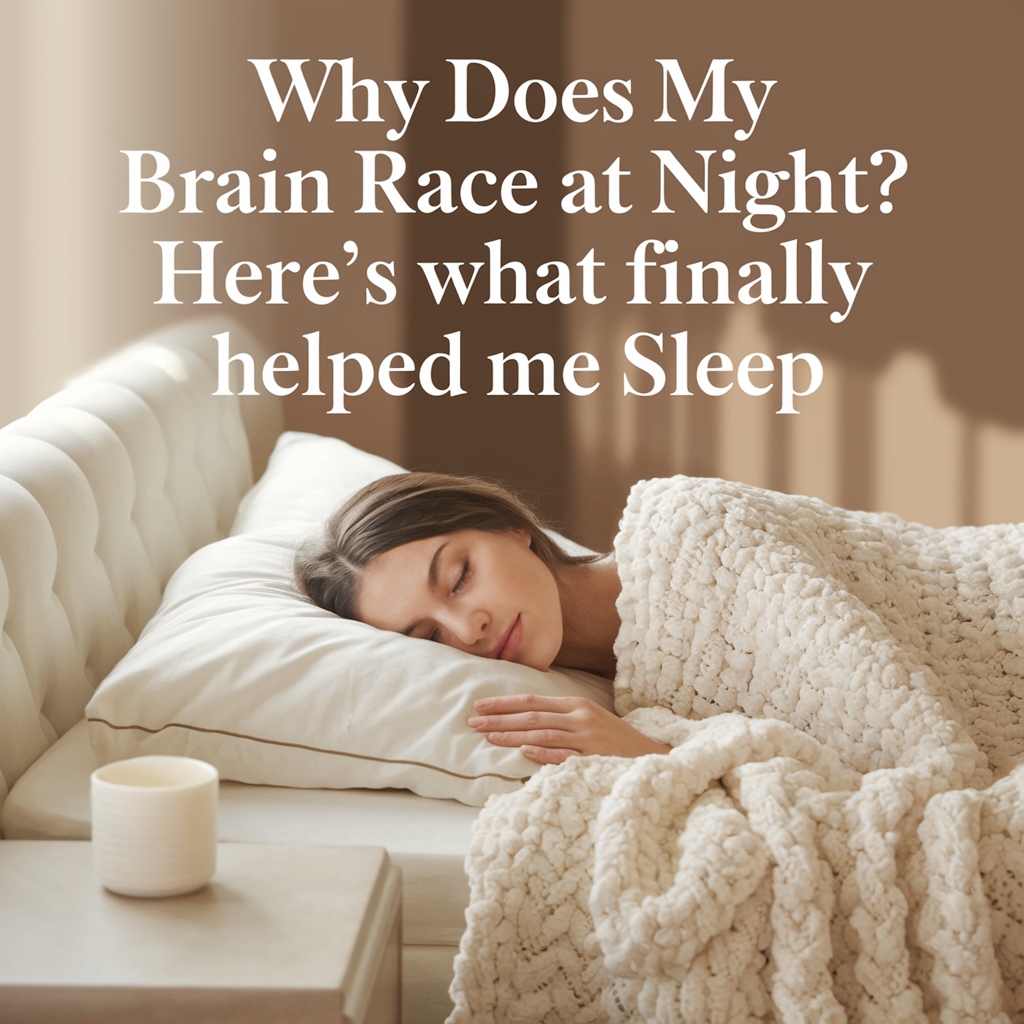
As an Amazon Associate we earn from qualifying purchases through some links in our articles.

